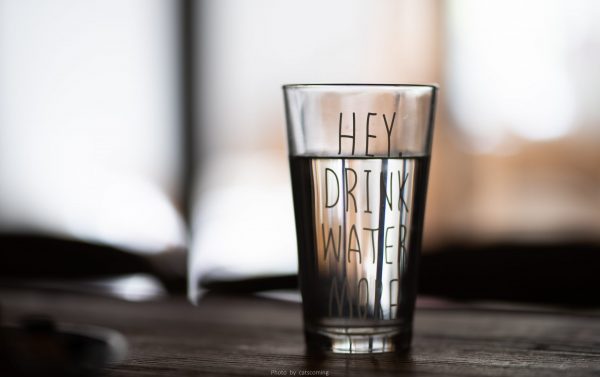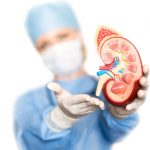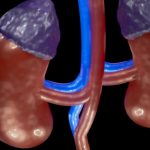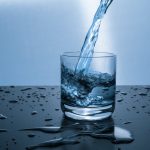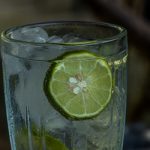When you get thirsty, there are so many choices that are tastier than water. Soda, sweetened juices, or even a beer might sound good.
And sure, all of these beverages do offer some hydration. But you have to consider all of the crap found in them. Things like sugar, corn syrup, sodium, artificial sweeteners and flavorings that will send you down to the path of bad health and early death.
The more important point, however, is that your body needs water to survive. Up to 60% of the adult body is made up of water. It’s found in every cell, every organ and every type of tissue in your body. Even the bones contain water.
Yet, at last count, only about 22% of U.S. adults were drinking the general recommendation of eight cups (64 ounces) or more of water each day. And this is well below the Institute of Medicine’s (IOM) official recommendation of 13 cups a day for men, and 9 cups a day for women.
There aren’t that many things that will not be improved when you increase your water intake.
For example, water can actually slow down aging. One of the ways it does this is by flushing excess sodium out of the body.
New research out of the National Heart Lung and Blood Institute shows how elevated sodium levels are associated with a greater chance of faster biological aging. This includes up to a 64% increased risk of developing debilitating chronic diseases, such as heart failure, stroke, atrial fibrillation and peripheral artery disease, as well as chronic lung disease, diabetes and dementia.
Conversely, the research found that adults with the lowest sodium levels had the lowest risk of developing chronic disease.
So that’s one thing drinking more water can do for you.
Plus, I try to explain to people that every cell in the body needs water. Cell division, respiration and all of the other functions the cells in our body perform day in and day out have to occur in a liquid environment. If your cells are not robustly filled with water, then your DNA won’t work well. Cellular processes will slow down and the aging process will be accelerated.
Ten Instances When You Need Water the Most
While you should consistently be hydrating your body, there are certain times when more water is critical. These include:
#1 – When you have brain-fog. Even mild dehydration can decrease cognitive function, affect your concentration, reduce level of alertness and impair short-term memory.
#2 – When you have a headache. Headaches, including migraines, are one of the first signs of dehydration.
#3 – When you have a slump in energy. Dehydration is a known cause of low energy. Without enough water, your body can’t deliver nutrients to your cells or carry away waste products.
#4 – When you sweat. Sweat is basically water and salt. So the more you sweat, the more water your body loses. This can lead to dehydration. Always take along some water on hot, humid days and when you work out.
#5 – When you’re sick. Vomiting, diarrhea and fever all deplete the fluids in your body. Drink up!
#6 – When you are constipated. Constipation is often directly related to dehydration. Drinking more water helps to soften your stool so that it is easier to poop.
#7 – When you have a kidney or urinary tract infection. Dehydration contributes to the formation of kidney stones and urinary tract infections. Stay well-hydrated to avoid them.
#8 – When your joints ache. If you are not drinking enough water, you will have a decrease in the synovial fluid that reduces friction in your joints. It’s also important to note that about 70% to 80% of your joint cartilage is made of water. So when you are dehydrated, joint pain is increased. Start slugging down the water!
#9 – When you want to lose weight. If you replace your sugary drinks with water, it’s going to help keep your weight down. Plus, if you drink water throughout the day, it will help keep you feeling satiated.
#10 – When traveling by plane. Airline cabins have very dry, recirculated air. And longer flights shift fluids to the lower extremities. This combination can lead to acute dehydration. Depending on the amount of time you expect to spend in the air, purchase one or two liters of water after passing security and drink about eight ounces every 30-60 minutes during the flight.
How to Drink More Water Every Day
To start your day off right, you should have your first glass of water in the morning right after you pee. You’ve got to replace the fluids you just flushed down the toilet along with the fluids you lost overnight from breathing.
I know some people who leave a glass of water sitting on the bedstand overnight to make it easy to remember. So they drink their water warm in the morning. Other people like to get up and make a fresh glass with some lemon juice or a slice of orange in it.
The next thing to do is to make your water easily accessible. I generally have a glass of water on hand at all times, and I have a 16 ounce go-cup that I take with me whenever I leave the house.
If you’re at home and tend to forget to grab a glass of water every now and then, just prepare it in an insulated go-cup first thing in the morning and carry it around with you. Refill it whenever it gets empty. And if you’ll be out for the day, just take it along – whether you’re going to work, golfing or to get your errands done.
If you’re one of those people who “doesn’t like water,” try an all-natural water enhancer. Avoid the ones that have added fructose, artificial sweeteners and sugars. Or, if you’re fond of carbonated beverages, something like a SodaStream might work well for you.
The key is to just find ways to get more water into your body.
SOURCES:
Goodman AB, Blanck HM, Sherry B, Park S, Nebeling L, Yaroch AL. Behaviors and attitudes associated with low drinking water intake among US adults, Food Attitudes and Behaviors Survey, 2007. Prev Chronic Dis. 2013 Apr 11;10:E51.
Popkin BM, D’Anci KE, Rosenberg IH. Water, hydration, and health. Nutr Rev. 2010;68(8):439-458.
Khorsha F, Mirzababaei A, Togha M, Mirzaei T. Association of drinking water and migraine headache severity. J Clin Neurosci. 2020;77:81-84.
